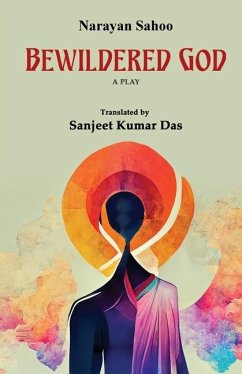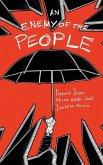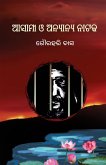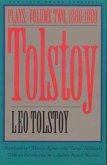The play Bewildered God, comprising fourteen scenes, unleashes a different taste to the readers and audience of Odia literature. In this play, the playwright Dr Narayan Sahoo has been unique and different from his earlier predecessors and contemporary playwrights of Odisha in the sense that he has tactfully and sarcastically dealt with the voice of dissent against communalism, violence and bloodshed, of human beings' religion and livelihood.Jagannath, Ram, Ishwar, Jesus, and Allah are different names of only one omniscient, omniscient, and omnipresent soul. Though the learned pundits and experts of all religions undisputedly have accepted this view, today in Ayodhya, the Ram Mandir-Babri Masjid issue is now pan-Indic, not confined to Hindu and Muslim communities only. As the different feet of an Octopus spread in different directions, the deadly poison of communalism has infected the people and their lifestyle of entire India. Today, God is not the faith of devotees but rather a toy in man's hands, or if we speak, as stated by the playwright, Man is a master, and God is the magician to run the show as directed by the master.The horrible Gas Tragedy had happened in Bhopal in 1984, and by that, many people were disabled, and so was Mary. She lost her procreative power. Her unfortunate husband Joseph knew this, but he couldn't express this bitter truth to Mary. The playwright has very beautifully penned down the sheer reality of life. One day, human beings were considered as the children of God because of the existence and development of heavenly feelings in them. The cadre of attendants attached to the temple, such as priests, servitors, and administrators, were worshipped and respected in the society. But today, the Head Priest and Head Servitor in the play, engrossed in their carnal desire and longing for money, have used God as an instrument. Today, Ishwar Nivas (Dwelling Place of God) turns into a playground of pretension, deception, hypocrisy, and corruption, instead of being the storehouse of devotion and conviction, . The Head Servitor has not withdrawn himself from enjoying the bodily pleasure of devadasi (a female dancer attached to a temple) Leelamayee at the dead hour of night. However, the Christian Mary's youth and money are the objects of his temptation. For that reason, Mary couldn't protect herself. It was not for Mary only, but for God who was worshipped on Ratnabedi (the raised platform), and that His flute and uttariya (Shawl) the servitor has stolen is a trivial matter. At the same time, for his self-interest, this man has blamed God. Therefore, God becomes helpless for his release from social criticisms and blemishes. It is marked that his existence is practically possible only because of the Head Priest and Head Servitor. The title of the play is properly justified. Despite this, everyone is to be tested with the touchstone of Time. Time is also an imaginary character in the play. Forfeiting God's interest, the people erect here the boundaries of communalism among them and created the mountain of religion, and are continuously engaged in inhuman activities. These are closely marked by Time and will be watched in future. Time is only the silent observer of all these happenings in the world. There will be no community, religion, deception, and hypocrisy in future- but only the supremacy of Time- with this possibility, the playwright has ended the play. As 'God' and 'Time' are characters in the play and have expressed their views, the play generates a new excitement in the hearts of the readers and viewers.
Hinweis: Dieser Artikel kann nur an eine deutsche Lieferadresse ausgeliefert werden.
Hinweis: Dieser Artikel kann nur an eine deutsche Lieferadresse ausgeliefert werden.








